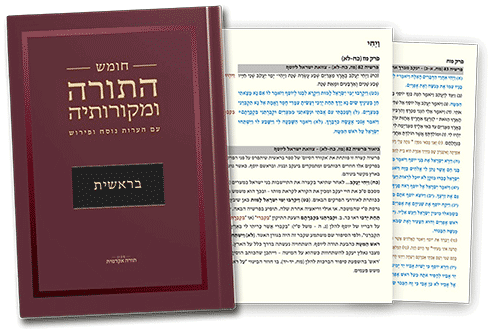 Edit article
Edit articleSeries
The Two Versions of Jacob

Isaac Blessing Jacob, Bartolome Esteban Murillo, ca. 1665. Wikimedia
At the behest of his mother, Rebecca, Jacob dresses up in goatskins and presents himself to his near-blind father as the beloved son, Esau (Gen 27). After extracting from Isaac the coveted blessing, Jacob, once again at his mother’s instruction, flees to Rebecca’s family in Haran, in order to evade the vengeance of his seething brother:
בראשית כז:מד וְיָשַׁבְתָּ עִמּוֹ יָמִים אֲחָדִים עַד אֲשֶׁר תָּשׁוּב חֲמַת אָחִיךָ. כז:מה עַד שׁוּב אַף אָחִיךָ מִמְּךָ וְשָׁכַח אֵת אֲשֶׁר עָשִׂיתָ לּוֹ וְשָׁלַחְתִּי וּלְקַחְתִּיךָ מִשָּׁם לָמָה אֶשְׁכַּל גַּם שְׁנֵיכֶם יוֹם אֶחָד.
Gen 27:44 Stay with him a while, until your brother’s fury subsides— 27:45 until your brother’s anger against you subsides—and he forgets what you have done to him. Then I will fetch you from there. Let me not lose you both in one day!
Rebecca then tells Isaac that she can hardly tolerate Esau’s Canaanite wives, and that her life would be pointless if Jacob, too, married such women:
בראשית כז:מו וַתֹּאמֶר רִבְקָה אֶל יִצְחָק קַצְתִּי בְחַיַּי מִפְּנֵי בְּנוֹת חֵת אִם לֹקֵחַ יַעֲקֹב אִשָּׁה מִבְּנוֹת חֵת כָּאֵלֶּה מִבְּנוֹת הָאָרֶץ לָמָּה לִּי חַיִּים.
Gen 27:46 So Rebecca said to Isaac, I am disgusted with my life because of the Hittite women. If Jacob marries a Hittite woman like these, from among the native women, what good will life be to me?
In the very next verse (the beginning of ch. 28), Jacob receives a second blessing from his father. Isaac calls Jacob, warns him not to marry Canaanites, sends him off to Padan Aram to marry into his mother’s family, and gives him the blessing of Abraham of land and fertility:
בראשית כח:א וַיִּקְרָא יִצְחָק אֶל יַעֲקֹב וַיְבָרֶךְ אֹתוֹ וַיְצַוֵּהוּ וַיֹּאמֶר לוֹ לֹא תִקַּח אִשָּׁה מִבְּנוֹת כְּנָעַן. כח:ב קוּם לֵךְ פַּדֶּנָה אֲרָם בֵּיתָה בְתוּאֵל אֲבִי אִמֶּךָ וְקַח לְךָ מִשָּׁם אִשָּׁה מִבְּנוֹת לָבָן אֲחִי אִמֶּךָ. כח:ג וְאֵל שַׁדַּי יְבָרֵךְ אֹתְךָ וְיַפְרְךָ וְיַרְבֶּךָ וְהָיִיתָ לִקְהַל עַמִּים.
Gen 28:1 So Isaac sent for Jacob and blessed him. He instructed him, saying, You shall not take a wife from among the Canaanite women. 28:2 Up, go to Paddan-aram, to the house of Bethuel, your mother’s father, and take a wife there from among the daughters of Laban, your mother’s brother. 28:3 May El Shaddai bless you, make you fertile and numerous, so that you become an assembly of peoples.
This sequence of events is somewhat puzzling.
Rebecca’s main concern seems to be to save Jacob’s life from his brother, Esau, who, as she hears, is plotting to kill her beloved son. Why, then, does she say nothing of this to her husband, Isaac? Why does she focus, instead, on the issue of Jacob’s marriage?
Next, Isaac knew full well that Jacob was the one who stole the blessing from his brother Esau, yet he does not echo Rebecca’s warning to Jacob. What would be the point of Isaac now hiding Esau’s plot of revenge?
It is also somewhat strange that Isaac never confronts Jacob about stealing the blessing designated for Esau. That act not only violated the rights of Esau, Isaac’s most beloved son, but also compromised the dignity of Isaac himself. Not only does Isaac fail to reprimand Jacob for his act of deception, he goes on to give him a second blessing!
Moreover, why was this second blessing deemed necessary at all? Isn’t one blessing per child sufficient?
Two Versions of Jacob’s Trip to Aram
These difficulties have been addressed in meaningful ways through creative literary interpretation. Still, the analysis offered by the source-critical approach is eye-opening, and it engenders new insights and meanings. According to this analysis, the story that we have in Genesis 27 is not a single story about two blessings given to Jacob, but two different stories about one blessing. The key to the source-critical division is in the transition from Rebecca’s charge to Jacob to flee from his brother in 27:42–45, and her subsequent complaint to Isaac about Esau’s wives in 27:46.
Why is Rebecca suddenly bringing up the issue of Esau’s wives in 27:46? Actually, this verse is the direct continuation of the very last verses of Genesis 26, which appear just before the introduction of the story of Jacob’s stealing the blessing of Genesis 27. Note how 27:46 and the material following it follow perfectly after 26:34–35:
בראשית כו:לד וַיְהִי עֵשָׂו בֶּן אַרְבָּעִים שָׁנָה וַיִּקַּח אִשָּׁה אֶת יְהוּדִית בַּת בְּאֵרִי הַחִתִּי וְאֶת בָּשְׂמַת בַּת אֵילֹן הַחִתִּי. כו:לה וַתִּהְיֶיןָ מֹרַת רוּחַ לְיִצְחָק וּלְרִבְקָה. // כז:מו וַתֹּאמֶר רִבְקָה אֶל יִצְחָק קַצְתִּי בְחַיַּי מִפְּנֵי בְּנוֹת חֵת אִם לֹקֵחַ יַעֲקֹב אִשָּׁה מִבְּנוֹת חֵת כָּאֵלֶּה מִבְּנוֹת הָאָרֶץ לָמָּה לִּי חַיִּים. כח:א וַיִּקְרָא יִצְחָק אֶל יַעֲקֹב וַיְבָרֶךְ אֹתוֹ...
Gen 26:34 When Esau was forty years old, he took to wife Judith daughter of Beeri the Hittite, and Basemath daughter of Elon the Hittite; 26:35 and they were a source of bitterness to Isaac and Rebecca. // 27:46 So Rebecca said to Isaac, I am disgusted with my life because of the Hittite women. If Jacob marries a Hittite woman like these, from among the native women, what good will life be to me? 28:1 So Isaac sent for Jacob and blessed him…[1]
In this version of the story (assigned to by biblical scholars to P, the Priestly source), Jacob never deceived Isaac. The entire episode of Genesis 27 (except for v. 46) was simply not a part of the story. Jacob was given the blessing only after Esau proved himself unworthy by marrying Canaanite women. In this version, he did not seek to usurp his elder brother. Similarly, Jacob went off on his journey (at the behest of his father, not behind his father’s back[2]) in order to marry, and not in flight. Jacob, in sum, is a much less problematic character. Isaac is also a less compromised and a more dignified character. He blessed Jacob of his own volition, fully aware of whom he was blessing.[3]
It thus seems likely that the later, Priestly version of the tradition about Isaac blessing Jacob was meant to supplant the first version by presenting the patriarch in as positive a light as possible.[4] Thus, “improvement” of the patriarchs’ image is not limited to Rabbinic and Medieval exegesis but begins within the Bible itself. [5]
Weaving the Stories Together
Be that as it may, the Torah chose not to adopt one tradition at the expense of the other, but to present both traditions simultaneously, and to weave them together into a single, continuous narrative. For many, this fact is of paramount importance. An authentically Jewish hermeneutic of the biblical text must proceed from the text in its present form, and not from its reconstructed sources.[6]
Yet Jewish exegesis has not bound itself to the final form of the text. The Rabbis typically interpreted a single word or phrase in ways that not only ignore the broader context but also wreak havoc with the fundamental syntax of the verse. They often juxtapose verses from completely different contexts and read them in conjunction with one another. The well-known principle אין מוקדם ומאוחר בתורה allowed Jewish interpreters to rearrange many sections of biblical narrative and read them without regard to their present order. In sum, reading biblical texts outside of their present sequence is an eminently Jewish way of reading. In this spirit, I would like offer a brief reflection on one of the many contrasts mentioned above between the two versions of the Jacob story.
The Reactive Jacob and the Goal-Oriented Jacob
The Jacob of the non-priestly story is a runner, albeit sometimes for good reason. He flees for his life from his brother Esau as he will later flee from the house of Laban (Gen 31:20–22).[7]As a runner who is focused on his own survival, he has little time to make long-term plans. Jacob will eventually marry the daughters of Laban. But this, like so much else in his life, is neither anticipated nor planned in advance. Life is what happens to Jacob as he is on the run.
 |
The Jacob of the Priestly strand is a very different individual. This Jacob does not live with a sense of fear. His sense of confidence allows him to leave the issue of the blessing in the hands of God. When he goes off to Padan Aram he does not go in fear and flight. He goes with a purpose – to marry into his mother’s family.[8] His life is not merely a series of reactions and ad hoc responses to unanticipated circumstances. It is a proactive life, future oriented and goal oriented.
Running from threats, whether real or perceived, is not a negative life strategy when employed judiciously. Yet a life characterized by constant fleeing is hardly a very dignified existence. Human dignity comes to expression not in a life of ad hoc reacting, but in a life that is molded both consciously and courageously.
The Dual Jacob as Model for Israel
It is not by chance that Jacob serves as a symbol for Israel. The Torah, I suggest, presents us with two models of life not only for the individual, but also for our people, the people of Israel. Much of our life as a people throughout our history has been characterized by both fear and flight. We have often lived the life of the wandering Aramean. Much of our history “happened” to us, and we would react on an ad-hoc basis. Our focus on physical survival hampered our ability to forge long-term goals for our future. Sadly, this situation largely continues in the State of Israel today. We still live in fear for our physical survival and focus our thoughts on how we might endure immediate threats. Little energy is left for forging our long-term, positive goals.
The pattern of fear and flight applies not only in the physical realm but also in the spiritual realm. Our sense of vulnerability has caused us to run not only from one land to another, but also from spiritual and intellectual challenges to our faith. Many Jewish communities have preferred to shun the universal quest for knowledge characterized by the university, and to insulate themselves in the traditional teachings of the past. This too is a kind of survival tactic. Though it is quite understandable, is not very dignified. The learning it produces helps to preserve the treasures of the past but offers little substance for the challenges of the future.
The combined narrative shows us that there is another model for Jacob-Israel. We need not always run in fear. Ultimately, fear and evasion breed more of the same. It is often better to confront our present and our future candidly, and with a feeling of security and confidence. This may allow us to grow in wisdom and to move forward with a clearer sense of direction.
TheTorah.com is a 501(c)(3) nonprofit organization.
We rely on the support of readers like you. Please support us.
Published
October 23, 2013
|
Last Updated
August 29, 2025
Previous in the Series
Next in the Series
Before you continue...
Thank you to all our readers who offered their year-end support.
Please help TheTorah.com get off to a strong start in 2025.
Footnotes

Prof. Rabbi David Frankel is Associate Professor of Bible at the Schechter Institute of Jewish Studies in Jerusalem, where he teaches M.A. and rabbinical students. He did his Ph.D. at the Hebrew University of Jerusalem under the direction of Prof. Moshe Weinfeld, and is the author or The Murmuring Stories of the Priestly School (VTSupp 89) and The Land of Canaan and the Destiny of Israel (Eisenbrauns).
Essays on Related Topics:










